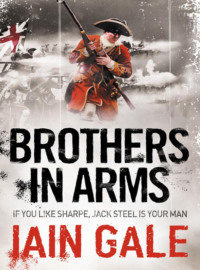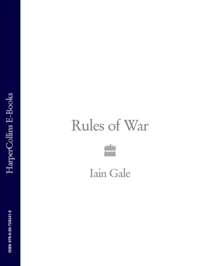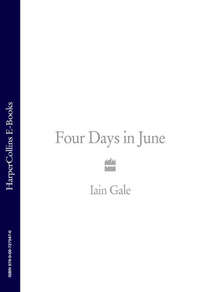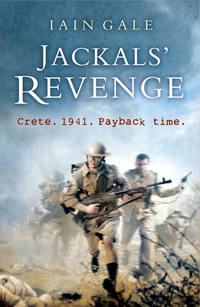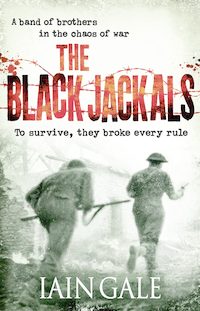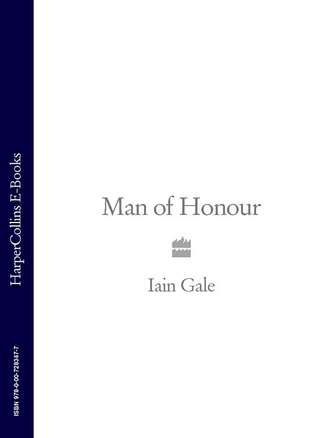
Полная версия
Man of Honour
‘Narva. Riga. What nonsense. Those names mean nothing. And now are we not allied to the Danes? Sweden’s enemies. I hardly think that Mister Steel will want to boast much of his relationship with the Swedish throne. Besides. Killing a few Russian savages? That’s not real war. Not the way gentlemen do battle.’
He drew from his cuff a crisp, white lace handkerchief and applied it gently to his delicate nose. ‘And that is precisely what I intend to demonstrate.’
Jennings walked forward.
‘Think now, Steel. Do you really want this end? Think on it. Do you really want to die in a tavern brawl. Were you aware perhaps that I had studied in London, under no less than the renowned Monsieur Besson? Perhaps you are familiar with him. He has taught the arme blanche in most of the courts of Europe.’
Steel did not reply. He merely drew his sword and assumed the en garde position.
Jennings instantly did the same. As Hansam hastened to Steel’s side, Jennings’ second walked to meet him. The two men shook hands and retired a few paces behind their friends.
The room had fallen silent now. Tables and chairs were pushed aside and most of the officers who had not already left began to make their exits into the street until only a small group of unwary subalterns remained. The staff too had long retreated behind the bar. The silence was broken suddenly by the sharp clang of metal on metal as Jennings tapped Steel’s blade.
Steel disengaged, circling Jennings’ sword with a deft flick of the wrist and made a slashing cut across the centre to unsettle his opponent. But Jennings had seen the move coming and side-stepped, returning to the en garde with the tip of his blade pointing directly at Steel’s side. He might have plunged it deep in, and the fact that he did not made it clear to Steel that he was only playing. Jennings spoke.
‘Oh come now, Steel. That was but a poke. I would not make use of such a thrust but with a ruffian. Have you nothing better to offer me?’ Steel raised his arm to the tierce position so that his blade was pointing directly downwards at Jennings, leaving his own body apparently unguarded. Jennings slapped at the blade with a clang of metal on metal and levelled his own sword, which came within an inch of Steel’s abdomen. Both men were sweating hard now. They pulled away for an instant, regaining their balance. Then circled and moved their blades around each other without touching. Steel’s sword made a marked contrast to Jennings’ lighter, standard issue infantry sword. But what it lacked in weight, the Major’s weapon made up in speed. Steel recovered his blade into the cavalry en garde, ready to slice at Jennings, but as he did so his opponent made a neat side-step and brought the tip of his own sword swiftly into contact with the Lieutenant’s arm, tearing the cloth of his shirt. Within seconds a thin red line had begun to darken the white cloth. Frampton spoke.
‘A hit to Major Jennings. First blood. Continue, gentlemen.’
Steel, appearing unaware of the damage to his arm, although actually in acute pain, took care to keep his blade as it was – pointing heavenward and poker-straight. If only, he thought, if only he will make one small error. Then I shall have him. He knew how easily his great blade could fall and with what force. How, given but a split-second his cut would sever Jennings’ sword arm and finish this business. But he could not find a way in. The man was too good. For all his foppishness and evident cowardice, it was clear that Jennings had not lied about his prowess with a sword. Steel began to walk to the right, encouraging his opponent to do the same until both men were circling slowly on the spot. Now. He thought. Now. If I can take the advantage. Just move for an instant to the left and then it will all be over. He prepared to make his move. Shifted the balance on his feet. Now. Now is the moment. The air hung heavy with anticipation. Now. It must be, now. But before Steel could strike the door of the tavern flew open with such force that its studded wooden surface banged hard against the wall.
The sudden noise broke the spell. Steel and Jennings stopped their dance of death and, frozen to the spot, turned their heads towards the light. Before they had a chance to renew the fight, the room had filled with a dozen redcoats armed with muskets. While two of them levelled their bayonets at the duellists, the others formed two lines through which another figure now entered the inn. A Colonel, a man in his late forties, clad in a neatly tailored dark blue coat, trimmed with red and gold lace. A Colonel on the British Staff.
The man strode forward purposefully towards Steel and Jennings, a grave expression on his face.
Hansam, moving quickly, pushed in behind Jennings to stand in front of the Colonel, attempting to block his view. He began to speak, quickly.
‘Good day, Sir. May I present myself. Lieutenant Henry Hansam of Farquharson’s. I imagine, Colonel, that you are wondering quite reasonably what exactly is taking place and I would not blame you one bit for entertaining such thoughts. What you see here, Colonel, what in fact Lieutenant Steel here was doing, Sir, was merely demonstrating to Major Jennings the relative virtues of the broadsword as opposed to the rapier.’
He wrested Steel’s sword from his grasp and proferred it to the Colonel.
‘This is the very sword in question you see, Sir. Quite a Queen amongst blades, would you not agree?’ Hansam pushed the hilt of the sword closer to the Colonel’s face, inviting inspection. ‘It was made by Ferrara, Sir, d’you see?’
But the Colonel did not care to see the sword. Fixing his gimlet eyes on Steel’s, he spoke. ‘Lieutenant. Perhaps you would care to explain to me yourself exactly what is going on here. You are aware are you not of the penalty for duelling? Particularly among officers of Her Majesty’s army in the field. And you appear to have drawn blood.’
Steel looked at his arm. The shirt around the cut was stained a deep red. ‘Sir. Yes, Sir.’
‘Yes, Sir. A court martial, Sir, with death as the ultimate penalty.’
The Colonel turned to Jennings. And you, Major Jennings. It is Major Jennings, is it not? You too should know better than this.’
‘I. Colonel …’ Jennings thought fast. ‘I have to say that I was provoked, Sir.’
‘That is as may be, Major. But you are the senior officer present, are you not?’
The subalterns attempted as best they could to melt into the shadows. The Colonel did not wait for Jennings’ reply.
‘Why don’t you just put up your sword, Sir, and we’ll say no more of it. And what of you, Mister Steel. What of you? I think that you had better come with me. Your sword, if I may, Lieutenant.’
Steel took his sword from Hansam, reversing it so that he held only the blade, and handed it hilt first to the Colonel who, signalling to two armed sentries to bring up the rear, led the way out of the tavern followed by Steel and Hansam. Steel presumed the worst. Jennings of course could be exonerated. Related to Farquharson and with power in high places, there was little he could do, save perhaps kill his commander, that would merit any serious punishment within the army. But Steel was a mere Lieutenant, of lower origins and with neither property nor capital. Perhaps he might be made an example of, in this army where only the harshest lessons would set the precedent.
Outside in the busy, foul-smelling street, where in the thin drizzle the townspeople mingled cautiously with the soldiers and the street vendors and tradesmen tried to go about their business as best they could and make the most of this sudden influx of customers, a troop of red-coated dragoons trotted past the group emerging from the tavern and Steel watched as a skinny urchin picked the pocket of an off-duty soldier.
Hawkins turned to Steel and to his surprise, gave him a wide grin. He motioned to the escort to leave them, returned the great broadsword to its owner and spoke again. This time though his voice had a quite different tone to that he had used in the tavern.
‘I’m sorry to have alarmed you in that way, Mister Steel. Forgive me. Perhaps it was just as well that I arrived when I did.’
He looked at Steel’s shoulder. ‘You might really have got into trouble. Best get that seen to. Allow me to introduce myself. Hawkins. Colonel James Hawkins, late of Colonel Hamilton’s regiment, currently on attachment to the Allied Staff.’
Steel had heard of this Colonel Hawkins and knew his reputation both in the field and out. It was said that as a younger man, during the wars of the Grand Alliance, Hawkins had taken the fort of Dixmude all but singlehanded. His capacity for drink was also well known and Steel could see from his now somewhat corpulent build and ruddy complexion that the latter at least was certainly justified. But whatever his predilections, there was precious little that James Hawkins did not know about soldiering. For all his stoutness, he still cut a dashing figure and his round face seemed to wear a fixed smile, helped by the subtle line of an old scar which ran up the side of his left cheek and which at the same time concealed behind it any inkling of what his true thoughts might have been.
He looked at Steel and the crease of a smile changed to another grin.
Steel looked puzzled.
‘Don’t worry, Lieutenant. You are not on a charge. Though I can’t say that I’m not tempted. You’ve led me a dance almost as merry as that you were leading our Major Jennings. No, I have sought you out not for punishment but for a quite different reason. Come. We’ll go to my quarters.’
He turned to Hansam.
‘Oh, Lieutenant Hansam. You may accompany us, if you wish. Come along. We do not mind. Do we Steel?’
With Steel and Hawkins walking at the front, the three officers walked together through the cobbled streets, mostly in silence although from time to time Hawkins made a comment about the inordinate amount of filth in the gutters, the changeable weather and variable quality of the local wine. They took first a left and then a right turn, ducking beneath the open galleries of the half-timbered shops and houses, until at length they arrived at a modest house whose merchant owner, wherever he might now be, had evidently spent some effort and no little money in embellishing its façade with neo-classical motifs in the latest style.
‘My servant found it. It is a little de trop, don’t you think. But still it’s comfortable enough.’
Hawkins showed the two men into the hall and through to the parlour which showed similar signs of ‘improving’ design. He motioned for them to sit before the fire and poured three large glasses of wine.
‘Now gentlemen. Or more specifically, Lieutenant Steel, to our purpose. The battle is won and you gentlemen, whatever Major Jennings might say, played a great part in its winning. It was a glorious victory, but mark you, at a price. In Vienna the Emperor talks already of making Marlborough a Prince. The Queen herself, I dare say, has written to him. We may have won a battle and strategically are in a good position. But gentlemen, in London we are undone. Fifteen hundred dead Britons does not make pretty reading. The Tories will say that Marlborough is finished. They will ask why so many men should have fallen to take one hill. And soon they will start to to call for his dismissal. We need to move fast before any such harm can be done. We must persuade the Elector, by military might, to come over to us and abandon his French allies or we must frighten him into submission. For both we need an army that is fit to fight.
‘But there is another problem. To advance we must be supplied. This town with its alehouses and courtesans may seem like the Elysian Fields to you gentlemen. But the troops are wanting. There is no bread. Flour cannot be got. Do you know how many hundredweight of bread a day this army requires merely to march, let alone fight? I will tell you. Sixty thousand men need 900 hunderweight of flour. Of course, we have our field commissary from the agency of commissioners of supply and transport. We have our agents also. And they’re all admirable men in their field: Solomon and Moses Medina. And His Grace the Duke of Würtemberg has sent to his country for 200 wagons to help bring on the stores. But first gentlemen, we must have the stores themselves. It appears that flour cannot be got from the usual channels within less than three weeks. And without flour we have no bread and without bread’, he paused ‘without bread we have no army. Brigadier Baldwin has been instructed to get all the corn he can find and lay it in the magazines at Neuberg. But we need flour immediately, or the army will starve. And that, if you’ll permit me, Mister Steel, is where you come in.’
Steel was perplexed. Having pardoned him for what was a court-martial offence, the Colonel now appeared to be commissioning him as some sort of quartermaster. Before he could ask however, Hawkins went on.
‘You will assemble your half-company of Grenadiers, Mister Steel, and you will take yourself off to the little village of Sattelberg. It’s around five days’ march from here, southwest, across the Lech and past Aicha. I don’t expect that you’ll run into any of the enemy. They’re much further north. Even the Bavarians. At Sattelberg you will meet up with a merchant. A Bavarian, by the name of Kretzmer. Nasty piece of work if you ask me and in the pay of both sides, unless I am mistaken. Which I rarely am. But I do have good reason to believe that he’ll be able to sell you some flour. And that’s what matters. At this moment I truly believe that I’d deal with the devil to get hold of enough flour to feed the army. You must of course check that it’s good. Oh, don’t worry. I know you’re no expert. I’ll be sending a cook with you – my own man – to tell the stuff.’
Steel’s face had coloured. Hawkins saw it.
‘A little more wine? It is rather stuffy in here.’
While Hawkins refilled their glasses, Steel stared intently at the painted black-and-white chequer-boarded floor and Hansam wandered across to the window, pretending to fix his gaze on the skyline.
Eventually, Steel spoke: ‘Allow me, Colonel Hawkins, to make certain that I have this quite straight in my mind. You take me away from a matter of honour, in the face of my brother officers, in the face of the regiment and the brigade. You order me to abandon a duel, albeit illegal, which I fought as a consequence of having been grossly insulted and physically harmed. And you do so in order to put me in charge of a detachment of requisition of men from the finest company in the British army, to get flour for the army’s bloody bread?’
Hawkins raised his eyebrows. He smiled bemusedly and thought about it. ‘Yes. Quite so, Mister Steel. You are right. Have you a question?’
Hansam muttered something under his breath, but Steel continued. ‘Yes, I have a question. Is this, Colonel, all the reward I get for my part in the taking of that bloody hill?’
He pointed towards the window beyond which they could see the outline of the Schellenberg, towering over the town. ‘Is this then all my bounty?’
He slammed his glass down on the table. ‘By God, Sir, I … I’ll …’
Hansam, moved to action, placed a firm hand on his friend’s arm.
Hawkins smiled. He had known for a while about Steel. Had noted the mention of his name in connection with some matter of honour here, a modest act of bravery there. It was his job to take notice of such things. To mark out men who might otherwise not come to the attention of the Commander-in-Chief. For this was an army in the making and Hawkins’ brief was to find the men to lead it. He had been waiting for this moment for some time and had known that sooner or later it would come. He had hoped that when it did Steel would not let him down. And he had not been disappointed. The Colonel spoke gently.
‘Yes. I can see that my sources were quite right about you, Mister Steel. You have a temper that knows no concept of rank. In any other circumstances, much as I like you, I would probably have had you taken out and shot for insubordination and threat. But at the present moment, I can see that you are precisely the man we need.’
Steel stared at him, quizzically.
‘You’ll hear more? Oh yes. There is more required of you. Much more.’ Steel frowned. Then began to laugh, shaking his head. ‘Colonel Hawkins. Do not, please insult me afresh. You are playing with me and this surely is not the conduct of officers. What can you mean now I wonder? Do you perhaps wish me also to procure a case of perfume for your wife. Or perhaps a trinket for your mistress?’
Steel realized he had gone too far. Hawkins though, merely stared at him, and chose his words with care.
‘Mister Steel, I have no wife. Or at least not any longer. And since she passed on I have not had eyes for any other woman.’ He paused, poured himself a glass of wine and took a long draught before continuing.
‘I do, however have a proposition for you.’
Steel nodded. ‘I am truly sorry to hear about your wife, Sir. And sorry too if I caused you offence. But believe me, Colonel, whatever you are come to offer me, I am certainly in no position to undertake favours.’
‘This is no favour, Mister Steel. It is a direct order. From His Grace.’
Steel stopped and moved Hansam’s arm from its grip on his. ‘You come from Marlborough?’
Hawkins nodded, smiling.
‘Then do please continue, Colonel.’
‘His Grace is quite aware of your prominent part in the late battle, Steel. And of the advancement it might justify. Advancement which might be particularly alacritous should you feel able to carry off this other … little business.’
Steel nodded.
‘You are aware no doubt that some ten years ago His Grace was imprisoned in the Tower of London on a charge of being a Jacobite. That of course we now know to be utterly false. Do we not, Mister Steel?’
The Colonel gazed at him hard, awaiting a reply.
‘Do we not, Mister Steel?’
‘We do, Colonel.’
‘We do. Of course we do. Quite right again. However. And this is where you come in. When you encounter our friend the flour merchant you will find that he also has something else on his person for you to deliver to me. It is a certain paper – a letter shall we say – which, were it to fall into the wrong hands would give certain parties at home in London the opportunity to engineer the removal of His Grace from command of this army. And that, Steel, is a state of affairs which I am sure you will agree would be no less than catastrophic.’
‘Sir.’
‘So now we come to the crux of the matter. What we would like you to do Steel, what His Grace requires you to do, is to relieve this merchant of his letter and return it to its rightful owner. If you do not then he will sell it to the French, who will pass it to the Duke’s enemies, of which there are a good few. And that will be the end for Marlborough, the army and you. It’s as simple as that. You’ll do it?’
Steel was silent. He thought for a moment. ‘May I ask what the letter contains, Sir? To whom it is addressed.’
‘No. You may not ask that. But I shall say merely that it contains material sufficient to destroy Marlborough forever and perhaps even to condemn him to a traitor’s death on the gallows.’
There was another pause. Steel spoke again. ‘May I ask, Colonel, as to why you have chosen me for this … honour?’
‘A good question. But it was not merely my choice. You are the Duke’s man now. Your name came to Marlborough from London. From no less than his own wife. You were recommended I believe by someone in the Duchess’s inner circle as a man who is utterly trustworthy and loyal to the Duke’s cause. And as you know there are too many in this army who would not perhaps fulfill those precise criteria. Eh, Hansam?’
‘Quite so, Colonel.’
Steel walked across to the window and gazed out on to the town below. So that was it. Steel had thought that by resigning his commission in the Guards, by removing himself from St James’s, he might evade forever the attentions of the woman whose love had first found him a career in the army.
Arabella Moore was the wife of a Director of the Bank of England; a substantial landowner. She had done well for the younger daughter of a West Country parson. But lovely Arabella was fifteen years her husband’s junior, and it had been clear for some time to those who spoke of such things in society circles, that for all his wealth and the evident care he took of her, in certain matters her dear husband was unlikely to satisfy his young bride’s voracious appetite. Steel had been seduced in an instant by her ravishing looks and infectious gaiety. They had met at a dance in Edinburgh, at Mister Patrick’s assembly rooms in the High Street.
Steel had been an impressionable youth of eighteen, she a high-ranking married woman of twenty-eight. Their summer flirtation had grown to become something more and on her return to London, Arabella had been only too happy to pay for her young lover’s commission into the Guards. And so, for five glorious years, although careful to be discreet, they had enjoyed each other to the full. And in that time Steel had grown from boy to man, loving his mistress and his regiment with at first an equal passion but gradually realizing that while the bedchamber yielded delights that were gone in an instant, his love affair with the army had somehow blossomed without his knowing it into something altogether more enthralling.
And so he had fallen out of love with Arabella and had spent more time with his other love. Evenings in the mess and mornings at drill. As other men returned from the wars in Flanders and he thrilled to their tales, the parade ground duties which at first had seemed so grand, began to pall. Peace in 1697 seemed to set the seal on his fate. But Steel wanted action and, with a guile learnt from his lover, managed to engineer his way into an attachment to the command of the Swedish army, then newly embarked on a war with Russia. It had been clear though that something more drastic was required to distance himself from Arabella. He had thought that a move to Farquharson’s and this new war might suffice. But now she had found him again and with that devilish skill he knew so well had placed him in such a position that he could not possibly refuse the honour offered to him. Recommended for the task directly by Sarah Churchill, his Commander-in-Chief’s wife and the Queen’s own confidante, he could do nothing but accept this unlooked-for mission, whatever it might bring. He smiled at the impossibility of his situation. How very, very clever she was. He turned to Hawkins. Hansam saw that he was smiling broadly.
‘Of course, Colonel, I accept. What else might I do? I am honoured. So tell me, please. When do we start? How many men do I take? Can I choose them? Have you any more precise information? Have we plans? Names?’
Hawkins clapped him on the shoulder.
‘Wait, my boy, patience. All in good time, Steel. More immediately, I have arranged a meeting for you with Marlborough. He wishes to see for himself this man who comes to him so highly recommended. And then you will go. In four days’ time.’
Steel raised his eyebrows. Four days. It was time enough, presumably, to gather his men. Hawkins went on:
‘And you’ll have company. An Ensign of Grenadiers, newly arrived from England. A Mister Williams. A pleasant lad. He’s my late wife’s nephew. Your Colonel’s agreed to take him in. Be sure to take care of him, Steel. Oh, and try to behave yourself. It would do to forget that business with Jennings. You can be sure that you cannot avoid him on this campaign.’
He smiled to himself.
‘Just remember that the man’s a fool and consider the likelihood that like any fool who serves with the army, he’ll meet a fool’s death,’ ere long. Do not take the trouble, Steel, to take upon yourself a task which fate has so clearly marked out as a foregone conclusion.’
Steel smiled back at the Colonel. He was warming to the man, but was still unsure as to quite how to take his comment. Whether it was meant in jest or in deadly earnest.
Hawkins laughed. ‘And now, gentlemen, we have a war to fight. And I am afraid that I must take my leave of you. Might I suggest that you repair to another establishment. I hear good things of an inn on the other side of the city, close by the bridge, at the sign of the running horse. At least there you are not likely to encounter the good Major. And Steel, you’d best have that arm looked at. You’ve a busy time ahead of you, and you know how the Commander-in-Chief is most particular about the condition of his officers. Especially those whom he chooses to engage in his personal service. We wouldn’t want you to come to any harm before you’ve even set out.’


